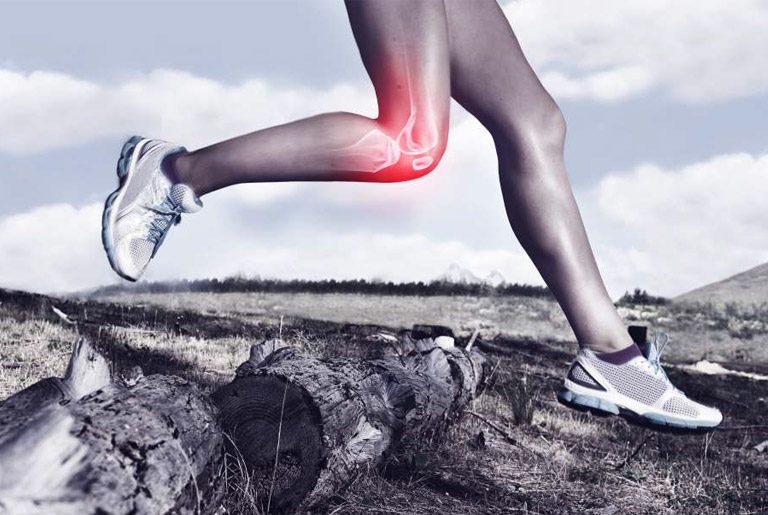Have you lately been finding it difficult to climb a couple of stairs without taking breaks? Or do winters feel like torture to your joints, especially your knees? You may be suffering from chronic knee pain instead of temporary knee pain.
While temporary pain may be due to a knee injury, constant knee pain results from underlying causes. Even though many people experience knee joint pain, chronic knee swelling and pain affects explicitly those in the older age bracket.
Before we delve into discussing chronic knee pain treatment, let us understand what causes it and how you can avoid it.
What is chronic knee pain? : Chronic knee pain is long-term pain due to an unhealed knee injury, trauma, or other underlying health conditions. When your injury refuses to heal, or the trauma to your knee joint is such that it requires constant medical attention, the pain may remain persistent or chronic and causes swelling and sensitivity to the knees.
What causes chronic knee pain? : The knee joint is the point of connection for the shinbone, thigh bone, and knee cap. Any injury to either of these can cause an indirect impact on the knee joint. Some common causes of trauma to the knees are accidents, gout and infections, damaged cartilage, falling from a height, build-up of uric acid, sport or workout injuries, and much more. Some of these may result in dull or minor knee pain; however, when the chronic knee pain is also unbearably extreme, there may be cause for some concern.
Bone tumours usually cause extreme knee pain that refuses to go away. Suppose you notice that your chronic knee pain has spread to other bones of your body. In that case, there is a possibility of bone disorder conditions like osteoarthritis or osteoporosis.
What are the symptoms of chronic knee pain? : During the onset of chronic knee pain, some symptoms accompany the initial dull ache in your knees. Be on the lookout for symptoms like muscle cramps, constant aching, pain due to movement, redness, tenderness and swelling of the joints, stiffness and weakness in the legs, reduced range of motion, and constant dull burning discomfort.
While most people will experience only a couple of these symptoms for their pain, some might even experience a majority or all of them as the pain increases over time. However, ensure that you do not delay seeking medical help and consult your doctor at the earliest.
How to prevent chronic knee pain?: Some ways to keep your chronic knee pain or injuries at bay-
1) Warm-up before workout: One of the most common trauma causes to the knee joints is suddenly working out without proper warm-up. This shocks the leg muscles and gives them no time to prepare to bear the stress of exercise. Have a good 10 minutes of warm-up before working out to prevent injuries.
2) Low-impact exercises: Go easy on your workout. When you know there is a risk of injury or overdoing the exercises, it is best to keep them low-impact and avoid further complications.
3) Maintain appropriate weight: Shedding the extra weight may be beneficial in more ways than one. Maintaining appropriate weight eases the strain on your leg muscles to bear your body weight, thus keeping them comfortable.
4) Intake of nutrition: Chronic knee pain may be a sign of declining nutrition and vitamins. Ensure eating a well-balanced meal and supplementing it with Vitamin D, B and Zinc to strengthen your bones.
5) Wear comfortable footwear: Footwear impacts our legs more than we can imagine. Wearing strenuous and uncomfortable footwear puts unnecessary pressure on the legs and causes the muscles and tendons to strain. Get yourself suitable footwear to avoid all leg or knee-related problems.
6) Get support: When you notice that the dull pain in your knees that you tried to ignore for a long time refuses to go away, it may be time for you to seek medical help. Injuries to the knees can only worsen if left neglected for a long time.
If you’re looking for the best place to treat your chronic knee pain or injury, Sancheti Hospital, Pune, is excellent. With the best surgeons and orthopaedics, your knee pain will surely heal and vanish!
People also Ask:
1. How do you treat chronic knee pain?: If you want to try some home remedies apart from visiting a doctor, resting your knee well is the most helpful. Keep it at an elevated position while resting to ensure proper blood flow. You can also use hot compressions to reduce pain and cold compressions to reduce swelling and redness.
2. How do I know if my knee pain is serious?: While some knee pains may be temporary, ones that can be serious are those resulting from accidents, falls, wounds, etc. If you notice a deformity or swelling and redness that won’t subside, you should immediately visit your doctor.
3. Can chronic knee pain be cured?: Since chronic knee pain may result from several underlying conditions, you cannot usually treat it on your own. However, seeking medical help at the best hospitals like Sancheti Hospital, Pune, will help cure your chronic pain and relieve you.
4. How do I know I need a knee replacement?: When you have knee pain that restricts your daily activities or persists even in your resting position throughout the day, it is possible that your knees need replacement. Conditions like osteoarthritis may damage your knee joints and make movement difficult.








0 comments on “What Is Chronic Knee Pain, And How Can It Be Prevented?”